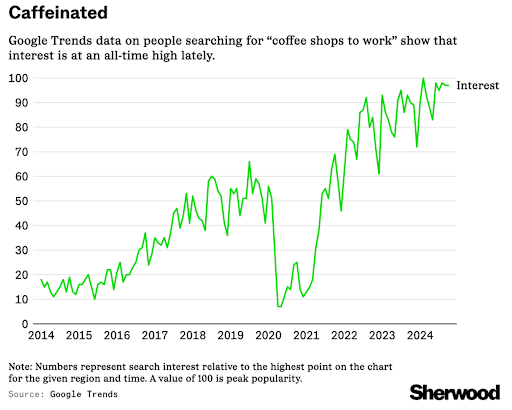Issue 200: The Year Ahead: 2025 and Beyond
Welcome to Backstory, a weekly newsletter turning global technology shifts into a three-minute read. This week, we’re thinking about the new year.
THE BIG TAKE
The Year Ahead: 2025 and Beyond
As we step into 2025, the pace of technological innovation shows no signs of slowing. Globally, artificial intelligence continues to dominate the conversation, with multimodal AI models set to bridge the gaps between text, image, and video understanding. Breakthroughs in quantum computing are expected to move from theoretical promise to real-world application, redefining cybersecurity and optimization problems across industries. Meanwhile, renewable energy is poised to scale even further, with advances in energy storage and grid management making sustainable power more accessible than ever.
Keep your eyes close to home: The Gulf, particularly the UAE, is set to remain a leader in this new era. With the UAE’s Vision 2031 in full swing, 2025 will bring the next wave of projects that blend innovation with infrastructure. AI-powered healthcare platforms will become more integrated, while green hydrogen projects and carbon capture initiatives are expected to mature into scalable solutions. The UAE’s ambitions for space exploration and satellite technology will also play a central role, with regional collaborations fostering innovation beyond Earth’s atmosphere. As these developments unfold, the Gulf’s position as a global innovation hub will only strengthen.
A time to lead. 2025 isn’t just another year; it marks a critical juncture in the evolution of technology and its impact on our lives. As industries undergo further transformation, staying ahead of these trends will be crucial. The next twelve months will see new opportunities, challenges, and milestones that will shape the next decade. As innovation accelerates, collaboration across sectors and borders will be key to ensuring its benefits are widely shared and its risks carefully managed.
QUOTE OF THE WEEK
“Innovation is the ability to see change as an opportunity—not a threat”
-Steve Jobs
This week, we’re exploring remote work and coffee. While it seems the remote work trend has ended, people are still searching for coffee shops to work in, according to Google Trends. Is remote work really over?
SPOTTED ELSEWHERE
The next chapter of Smart Cities. In the evolving landscape of urban development, the concept of “Smart Cities 2.0” emphasizes a shift from technology-centric solutions to human-centered design. As highlighted in an article by Microsoft, successful smart cities prioritize enhancing residents’ lives, fostering thriving businesses, and delivering efficient government services.  This approach recognizes that technology should serve as an enabler, addressing specific urban challenges rather than being an end in itself. By focusing on data-driven insights and community engagement, cities can create environments that are not only technologically advanced but also responsive to the needs and well-being of their inhabitants.
The curious issue of data sovereignty. In an era where data flows seamlessly across borders, the concept of data sovereignty has become increasingly significant. Countries are striving to establish control over data generated within their territories, effectively crafting new digital borders. This movement is driven by concerns over national security and economic interests. For instance, the European Union’s General Data Protection Regulation (GDPR) enforces strict data protection measures, compelling companies to store and process data within the EU. Similarly, some nations have implemented laws requiring data localization, mandating that data about their citizens be stored on local servers. These measures reflect a broader trend towards digital sovereignty, where nations assert their authority over digital information, reshaping the global digital landscape.




